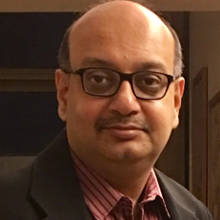Last weekend, I was away at an offsite for a national volunteering movement I am proud to be part of. The three-day affair is a significant event in our annual calendar. For volunteers who came in from all parts of the country, it was an opportunity to both review and reflect on the work that's made DaanUtsav the country's biggest festival of giving, but also plan ahead for the future.
Many people struggle to understand the construct of the movement. After all, DaanUtsav isn't a non-governmental organisation. It has no office or paid volunteers of its own. It is a peer-driven model, which entirely depends on the selfless efforts of its volunteers to evangelise the idea of giving in our society. It started out in 2009, thanks to a bunch of people with a shared set of beliefs, and has since grown into a huge movement, leveraging a simple, core belief: that all people are inherently good - and that by encouraging more people to experience the joy in giving, we have an opportunity to create better human beings and a more caring society.
Except that making all this happen is really challenging. For some of the pioneers, it remains a mission, like no other. Relatively new volunteers, however, go through long periods of struggle, in trying to persuade indifferent companies, media, government officials and school principals. But once you survive those initial moments of self-doubt, the experience of seeing the happy faces of beneficiaries - as some of us at the Mumbai Press Club did while running a unique photo appreciation-cum-exhibition project for slum kids across Mumbai - can be cathartic. And that's what motivates volunteers to pursue their task with passion.
So what's the upshot? As a journalist, I meet scores of corporate leaders and executives. I come away from meetings often hearing the same refrain: of people disillusioned with their current jobs, hoping that they'd find a better boss or a better place to work. Recently, I met a bright, young man who had begun to question his self-worth, ever since a new colleague, a year younger than him, was drafted into the company at a few levels higher. If he wasn't rising fast enough on the corporate totem pole, could it well be that he was losing the race?
The race to find meaning in one's life is an altogether different one. The search for a higher purpose can be a hugely energising and enervating experience. Many people go through life without one. And only the great organisations, whether they are in politics, arts, or even business, realise the value of developing a higher purpose, communicating it with conviction and reinforcing it from time to time for all its stakeholders.
Now, think about this: how often have you heard business leaders articulating an organisational purpose that's highly inspiring and energising? Raj Sisodia, who co-founded the Conscious Capitalism movement, says just as a few human beings set great purposes for themselves and eventually achieve greatness, the best companies in the world have great purposes. There is no "right" purpose for every business. Each business must strive to fulfil the purpose that is within its own collective DNA.
I look upon purpose as the essential glue that will bind the organisation of tomorrow. Needless to say, it isn't just enough to have a great purpose, but without one, you run the risk of being caught in a mindless state of drift.
This is where business leaders could take a cue from non-profits. Imagine if a high-performance business leader had to lead a peer-driven movement? Now, this isn't a trivial challenge. For one, every "employee" is a free agent. You can't induce them with higher salaries and bonuses. You can't simply crack the whip and hope to get instant results. None of your partners in the extended "enterprise" - distributor or supplier - will necessarily dance to your tune.
How do you infuse passion and purpose into your team, without the old crutches of the command-and-control model? Setting a great purpose is an essential tool for any contemporary leader. How you lead and the strategy you design flows directly from this higher purpose. Consider the example of Medtronics, the world's largest medical technology company. It believes that its foremost priority is to contribute to human welfare. For well over half a century, this mission has guided its ethical framework and been an inspirational goal for its employees around the world. The company has a simple way to keep this mission burning bright in the hearts and minds of its employees. At its annual employee meets, Medtronics invites physicians and its patients to share their stories as a powerful reminder of its core purpose.
As part of our offsite, we sat together to watch a terrific TED talk by writer Simon Sinek. At the end of it, all of us carried home a profound lesson: keep strongly articulating the belief that inspires us to do what we do. People who choose to join our movement, do so only because they believe what we believe, not by what we do or how we do it.

